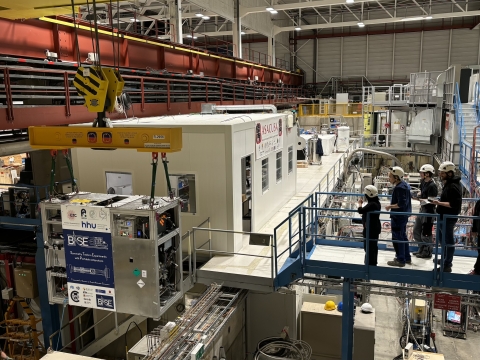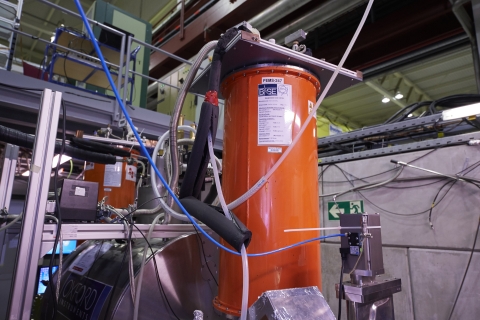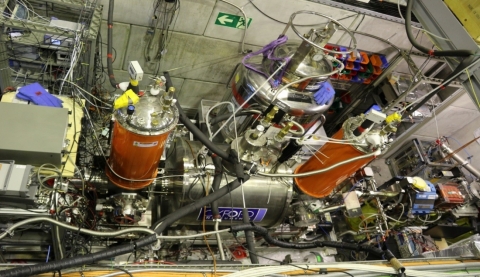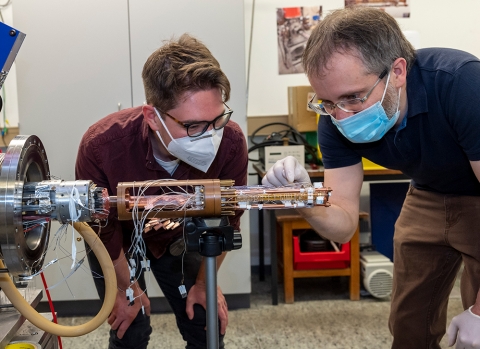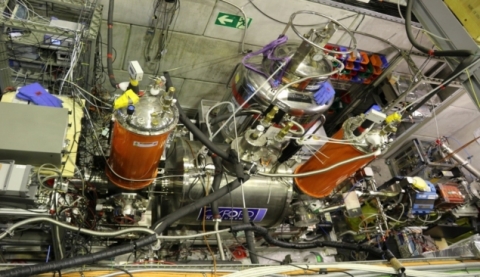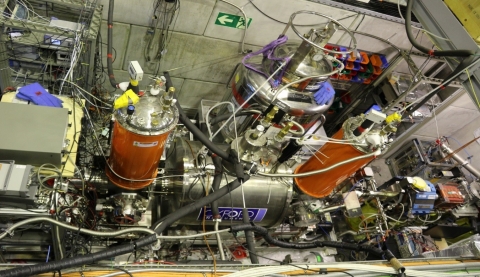BASE
CERN's BASE-STEP: A Leap Forward in Antimatter Transport
Antimatter, often portrayed as the elusive counterpart to ordinary matter, has long captivated the scientific community with its potential to unlock some of the universe's most profound mysteries. Yet, one of the most significant challenges in…
Read moreTesting CPT-symmetry and the Weak Equivalence Principle with Proton/Antiproton Clock Comparisons
Even though the Standard Model of Particle Physics is incredibly successful and provides extremely accurate predictions for many physical quantities and mechanisms, the model is known to be incomplete. For instance, it fails in explaining the…
Read morePrestigious Award for Quantum Logic Spectroscopy
In October, the prestigious Dissertation Prize of the Section Atoms, Molecules, Quantum Optics and Plasmas (SAMOP) of the German Physical Society was awarded to Peter Micke for his seminal work demonstrating quantum logic spectroscopy on highly…
Read moreCooling a particle from a trap away
The BASE experiment, located at CERN’s Antiproton Deccelerator (AD) performs some of the most precise measurements with antimatter in the world – namely measuring the magnetic moment and charge-to-mass ratio of a single trapped antiproton. With…
Read moreBASE develops a new technique to detect ultralight dark matter.
In a recent work published in Physical Review Letters [1], the Baryon Antibaryon Symmetry Experiment (BASE) at CERN has placed new limits on a possible coupling between photons and hypothetical axionlike dark matter particles with masses…
Read moreA mobile antiproton reservoir for precision measurements
The BASE collaboration has performed the most precise measurements of the fundamental properties of the antiproton in order to test CPT invariance as fundamental symmetry of the Standard Model [1, 2] and to search for dark matter-antimatter…
Read moreBASE probes antimatter - dark matter interaction
In a recent paper, the BASE collaboration presented results from a direct search for interactions of antimatter with dark matter and placed direct constraints on the interaction of ultralight axion-like particles (dark-matter candidates) with…
Read moreHow heavy is the proton?
To determine the mass of a single proton more accurately, the group of physicists from the Max Planck Institute for Nuclear Physics in Heidelberg and RIKEN in Japan performed an important high-precision measurement in a greatly advanced Penning…
Read moreThe BASE Experiment
BASE is a Japanese / German collaboration at the antiproton decelerator facility which was approved in 2013. The goal of the effort is to conduct Penning trap based high-precision investigations of the fundamental properties of protons and…
Read more
